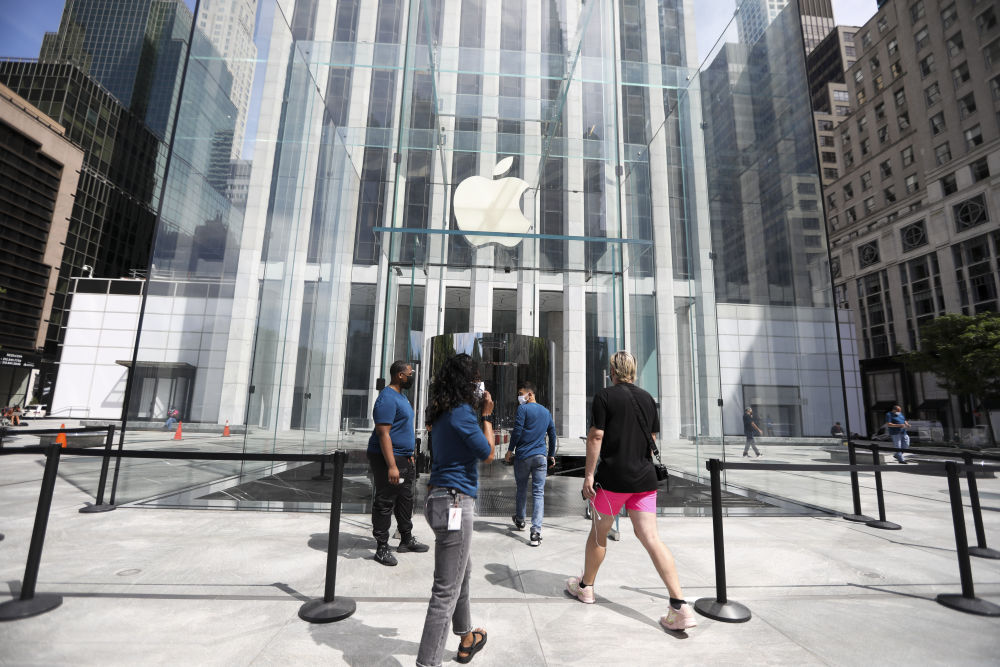
In today's ever-changing science and technology, Apple's every move has attracted the attention of consumers around the world. Recently, according to foreign media reports, Apple's OLED MacBook Air, which was originally planned to be launched in 2027, may be delayed, which undoubtedly poured cold water on the long-awaited fans. This article will delve into this incident from multiple angles, reveal the deep reasons behind it, and critically analyze Apple's strategy.
Apple has always been known for its high-quality, high-price product image, however, this time the OLED MacBook Air delay is closely related to high manufacturing costs. OLED (organic light-emitting diode) displays have higher color saturation and contrast than traditional LCD (liquid crystal display), which can bring users a more amazing visual experience. However, behind this technological advantage is high manufacturing costs.
According to foreign media reports, the high cost of OLED displays could lead to a significant increase in the retail price of the MacBook Air. In the highly competitive laptop market, price is often one of the important factors for consumers to choose products. If the price of the OLED MacBook Air is much higher than the market average, then it is likely to lose a portion of price-sensitive consumers. This high cost not only affects the market competitiveness of the product, but also may have a negative impact on Apple's brand image.
In addition to high manufacturing costs, supply chain challenges are also one of the important factors leading to the delay of OLED MacBook Air. In terms of OLED panel supply, Samsung Display and LG Display are the industry leaders. However, according to foreign media reports, only Samsung Display is expected to provide panels for the OLED MacBook Pro, which is expected to be launched in 2026, while the panel supply for the OLED MacBook Air may face greater uncertainty.
In the current context of tight global supply chains, Apple's options are relatively limited. This supply chain uncertainty can not only lead to production delays, but can also increase the cost of manufacturing products. Apple, as a world-renowned technology company, has been praised for its supply chain management, but the delay of the OLED MacBook Air has exposed its vulnerability in the supply chain.
In addition to cost and supply chain issues, consumer acceptance of OLED displays is also one of the important factors affecting the delay of OLED MacBook Air. The fact that OLED iPad Pro sales have been poor this year shows that simply switching from LCD to OLED display is not enough to entice consumers to pay for it.
When consumers buy products, in addition to paying attention to the display effect of the display screen, they will also consider the price, performance, battery life and other aspects of the product. Although OLED displays can bring better visual effects, if the performance of other aspects is not satisfactory, then consumers are likely not to pay for it. In addition, OLED displays also have potential problems such as screen burning and short life, which may also affect consumers' purchase decisions.
Faced with the delay of the OLED MacBook Air, we have to critically analyze Apple's strategy. First, Apple clearly lacks cost control. As a world-renowned technology company, Apple should have a stronger cost control ability to ensure the market competitiveness of its products. However, the high cost of the OLED MacBook Air this time has exposed Apple's shortcomings in cost control.
Secondly, Apple also needs to strengthen its supply chain management. In the context of a tight global supply chain, Apple should pay more attention to the diversity and flexibility of its supply chain to reduce the risk of production delays and rising costs. However, this time the OLED MacBook Air delay has exposed the shortcomings of Apple's supply chain management.
Finally, Apple also needs to work harder on product innovation. Although OLED displays can bring better visual effects, consumer demand for products is diversified. Apple should pay more attention to the comprehensive performance and innovation of its products to meet the diversified needs of consumers. However, from the delay of this OLED MacBook Air, Apple clearly has a lot of room for improvement in product innovation.
To sum up, the delay in the OLED MacBook Air is the result of a combination of factors. High manufacturing costs, supply chain challenges, and consumer acceptance issues have all had a significant impact. In the face of these problems, Apple needs to deeply reflect and adjust its strategy.
Apple should strengthen its cost control ability and reduce the manufacturing cost of products to improve its market competitiveness. Second, Apple should focus on diversity and flexibility in its supply chain to reduce the risk of production delays and rising costs. Finally, Apple should pay more attention to the comprehensive performance and innovation of its products to meet the diversified needs of consumers.
In the future development, Apple needs to pay more attention to the changes in the market and the needs of consumers, and respond to the challenges of the market with more flexible and innovative strategies. Only in this way can Apple maintain its leading position in the fierce market competition and win the trust and support of consumers.

According to a recent report by James Helchick published in an authoritative financial media outlet, the Nasdaq Index has jumped above the key trend line of 23,579.10 points, aiming for the historical high of 24,019.99 points.
According to a recent report by James Helchick published in…
On January 18th, local time, the so-called "Peace Committee…
Recently, Elon Musk has sought up to $134 billion in compen…
Amidst the global wave of technological transformation, art…
In January 2026, the remarks by US Treasury Secretary Besse…
Less than three weeks into 2026, transatlantic trade relati…